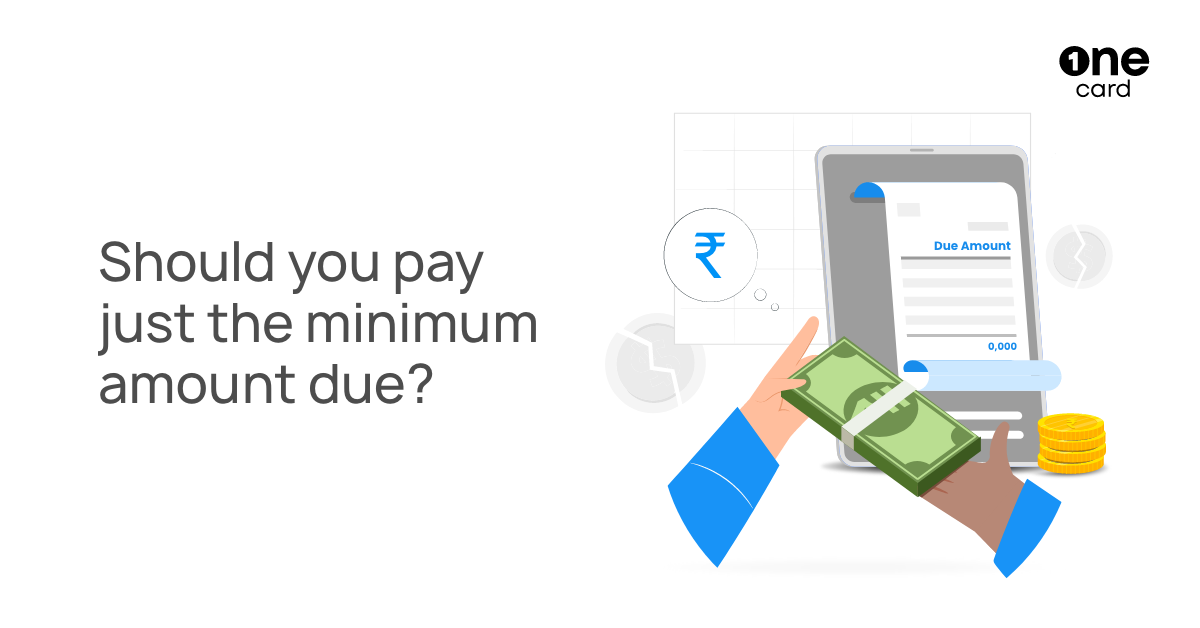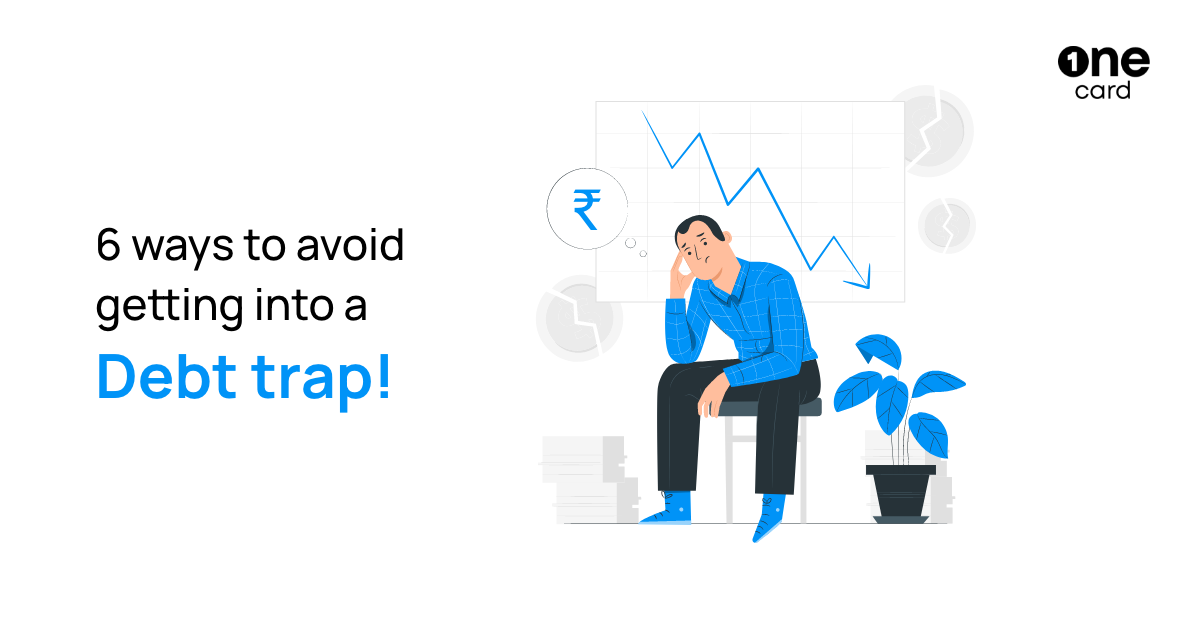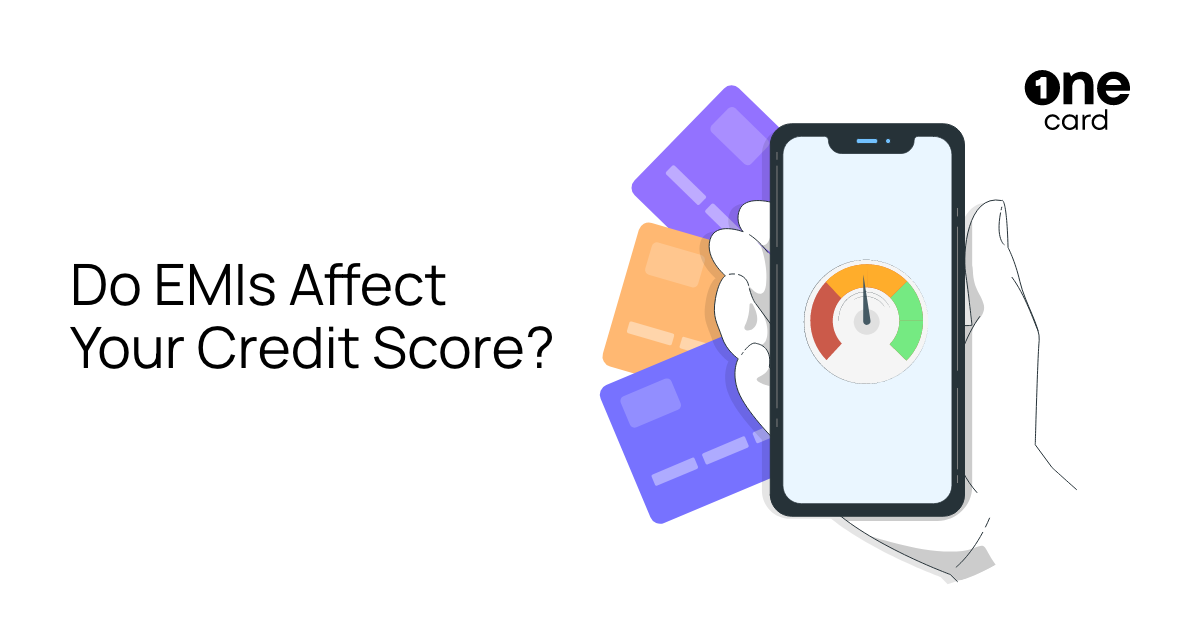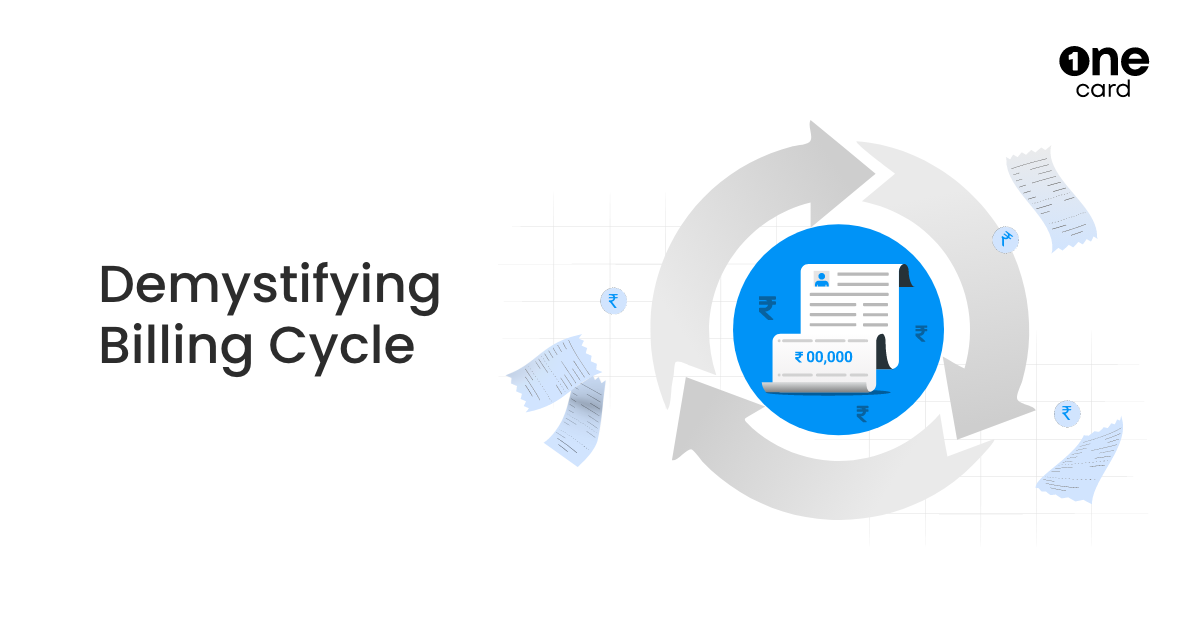Why Paying Credit Card Minimum Amount Does Not Help?
By OneCard | August 12, 2022

The minimum amount due is the minimum amount that you are required to pay against your credit card bill by the due date. It’s 5% of your total amount due.
For example, if your total credit card bill is Rs 30,000, your minimum payment or minimum amount becomes Rs 1500, which you have to pay by the due date to stop your credit score from taking a hit and to avoid late payment charges on your bill.
Sounds convenient? Isn’t it?
Well, not so much. And here’s why.
Paying just the minimum payment can honeytrap you into the vicious cycle of revolving debt. Revolving debt is when a credit card user keeps paying the minimum payment every month instead of paying the bill in full. Many of them are unaware that, even though their credit score doesn’t take a hit and there’s no late payment fee, interest is still charged on the remaining bill amount every month, and every additional spend will accrue interest as well. Since you are paying interest and the minimum amount due over and over again, you get trapped in revolving debt.
Let’s break it down further as to why you should avoid making a minimum payment.
Table of contents:
What is Credit Card Minimum Amount Due
The credit card minimum amount due is a small portion of the total outstanding bill that you must repay to your credit card issuer to keep your account in good standing. Typically it is 5% of the total outstanding balance on the bill generation date. However, it can be higher if there is any EMI or unpaid minimum amount from the previous billing cycle.
You Pay a Lot of Interest
As mentioned above, you pay substantial interest on your outstanding credit card bill. If not used wisely, credit cards can be an expensive tool for borrowing. Keeping an outstanding balance on your credit card for a long time can mean piling up interest. And if you keep paying just the minimum amount, you barely reduce your outstanding balance and end up paying most of your month’s income towards paying interest charges.
Your Credit Score Will Eventually Take a Hit
If you are planning to take loans in the future, it’s going to get harder with this approach. When you apply for a loan, lenders assess your repayment behaviour, and they will notice that you are unable to manage your credit card bills.
It will also most likely affect your credit score, which further makes it harder to get loans in the future, and this is how. If you keep paying the minimum amount due and keep accruing interest, there will be a point when most of your credit limit will be exhausted. And high credit limit usage affects your credit score negatively.
ALSO READ:- Understand OneCard Credit Card Bill Repayment
You Could End Up Paying for a Long Time
If you just keep paying the minimum amount over and over again without keeping a tab on your spending and income ratio, a point will arrive when you’ll be under credit card debt. You then might have to take a personal loan to clear off your bill. If your credit score is low, you might not be eligible for a loan or get it at a very high-interest rate. Which you’ll be paying for in EMIs for years.
In conclusion, it’s always advisable to pay your entire bill amount, and only pay the minimum during an extreme cash crunch. A way to manage to pay your entire bill is by making small payments across the month to ensure your amount is always low. It will keep the bill amount low and will also help you keep your credit score in good health.

**Disclaimer: The information provided in this webpage does not, and is not intended to, constitute any kind of advice; instead, all the information available here is for general informational purposes only. FPL Technologies Private Limited and the author shall not be responsible for any direct/indirect/damages/loss incurred by the reader for making any decision based on the contents and information. Please consult your advisor before making any decision.



Sharing is caring 😉